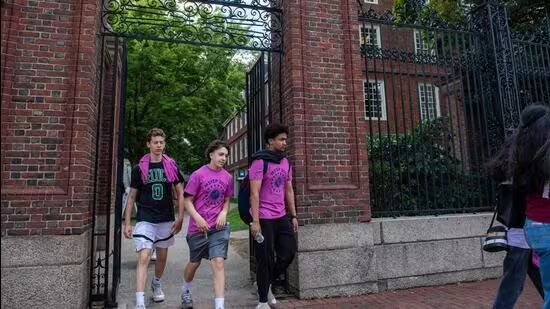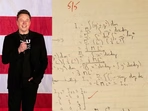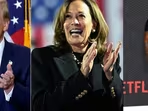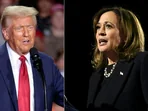US top court verdict: On colleges and race, Indian-American leaders split on party lines
Washington The Supreme Court (SC) verdict barring race to be considered as a factor in determining college admissions has sharpened the divide between liberal and conservative Indian-American politicians on party lines.

The responses are striking because the issue has brought to fore the tensions between Asian-American students who are assumed to see in the SC verdict a possibility of an increase in their own prospects for admissions to elite educational institutions based on “merit”, and African-American students, who see in the verdict yet another instance of the historic denial of opportunity, entrenchment of inequality and reluctance to level the playing field on the grounds of ground of “merit”. Democratic politicians are seeking to maintain their broad racial coalition, while Republican politicians are seeking to maintain inroads into Asian-American population with the verdict.
On the Democratic side, Congressional progressive caucus chair Pramila Jayapal, soon after the verdict, tweeted that it was a “terrible ruling”. “Ensuring that people from all corners of this country are represented at colleges and & universities is part of what makes America so unique, and this decision will hurt communities of colour and result in a loss in diversity of thought in education.” She added that the groups hurt by Thursday’s decision included low-income students and those facing systemic barriers to educational opportunities. “Affirmative action supports their paths to a quality education and economic mobility, but now, college access will be more limited to the wealthy few.”
Her colleague in the party and US House of Representatives, Ro Khanna, said that the Supreme Court was doing a “terrible disservice” to the future leaders of the country in a multi-ethnic and multiracial democracy”. He said the decision would not just harm Black and Latino students but also White and Asian-American students who would be deprived of an opportunity to understand their own country.
At the other end of the political spectrum, Nikki Haley, a nominee for the Republican ticket for President, a former governor of South Carolina and a former US ambassador to the United Nations, celebrated the verdict.
“The world admires America because we value freedom & opportunity. SCOTUS re-affirmed those values today. Picking winners & losers based on race is fundamentally wrong. This decision will help every student — no matter their background — have a better opportunity to achieve the American dream,” Hailey tweeted.
Vivek Ramaswamy, a candidate for the Republican nomination for President, hailed the verdict and called affirmative action “the single greatest form of institutional racism” in the US. As the SC had struck it down in college admissions, he promised to end it in “every sphere of American life” if elected President. While Ramaswamy has little chance of getting the nomination, he has become highly visibly in the American public sphere since announcing his bid.
The Indian-origin candidate added that “meritocracy and equity” were fundamentally incompatible and said he would even repeal an executive order that mandated race based hiring preferences for federal contractors. “Top companies now regularly disfavour qualified applicants who happen to be white or Asian, which spawns resentment and condescension toward black and Hispanic hires. Everyone loses in the end. Time to restore colourblind meritocracy once and for all,” he said.
Disclaimer: The copyright of this article belongs to the original author. Reposting this article is solely for the purpose of information dissemination and does not constitute any investment advice. If there is any infringement, please contact us immediately. We will make corrections or deletions as necessary. Thank you.
Title:US top court verdict: On colleges and race, Indian-American leaders split on party lines
Url:https://www.investsfocus.com









